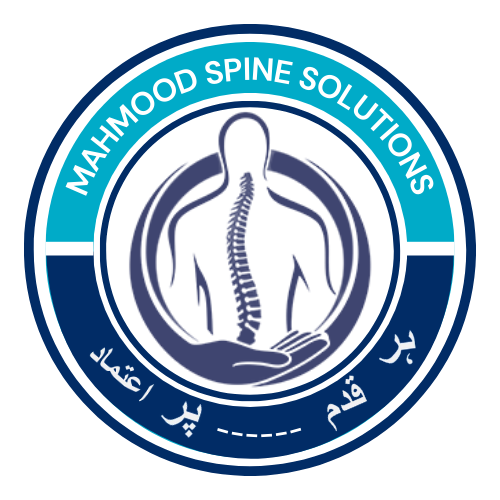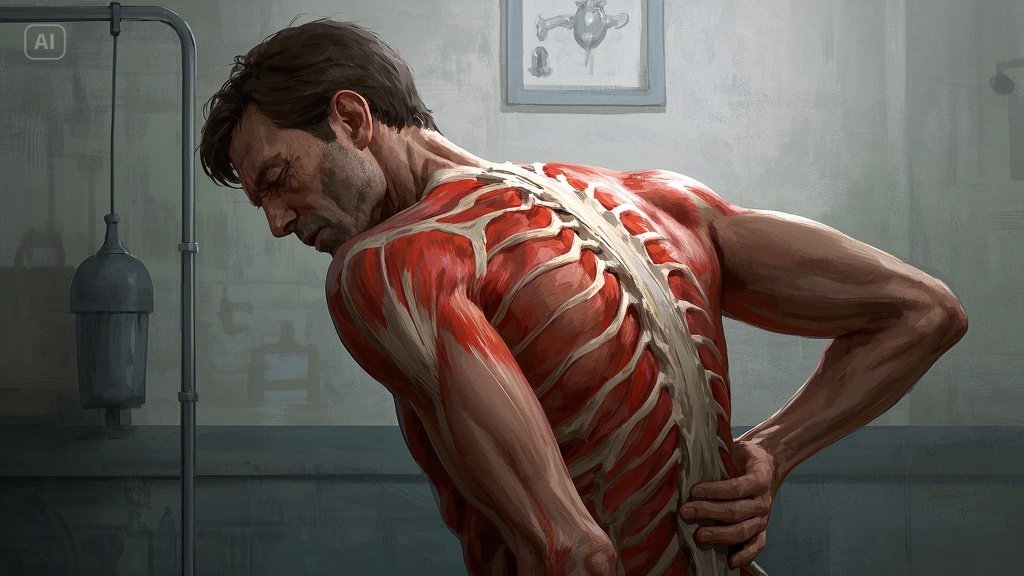Chronic back pain is a common issue affecting millions of people worldwide, and Pakistan is no exception. With the rise of sedentary lifestyles, long working hours, and physically demanding jobs, more people are struggling with persistent back pain. Whether it’s caused by poor posture, an injury, or an underlying medical condition, chronic back pain can significantly impact daily life.
The good news is that Pakistan offers a variety of effective and accessible treatment options, many of which don’t require surgery. In this guide, we’ll explore the causes, symptoms, and best treatments available to help you manage chronic back pain and improve your quality of life.
Understanding Chronic Back Pain
Chronic back pain is defined as pain that lasts for three months or longer, often persisting even after initial treatment. Unlike acute back pain, which usually goes away within weeks, chronic pain requires a more long-term and strategic approach.
In Pakistan, several factors contribute to the growing number of chronic back pain cases:
- Prolonged Sitting – Common in office jobs, especially in urban areas like Karachi and Lahore.
- Heavy Manual Labor – Agricultural and construction workers in rural areas face a high risk of back injuries.
- Limited Awareness – Many people ignore early symptoms, leading to more severe issues over time.
Recognizing the symptoms early can lead to better pain management. Common symptoms include persistent aching, stiffness, sharp pain, or pain that radiates to the legs.
Common Causes of Chronic Back Pain
Understanding the cause of your pain can help you find the most effective treatment. Some of the most common causes include:
- Degenerative Disc Disease – Age-related wear and tear on spinal discs.
- Arthritis – Inflammation of spinal joints, leading to stiffness and discomfort.
- Herniated Discs – When the soft material inside a disc presses on a nerve, causing pain.
- Poor Posture – Sitting incorrectly for long periods, especially in office settings.
- Injuries – Accidents, heavy lifting, or sudden movements can strain the back, leading to persistent pain. Men, in particular, often experience lower right back pain, which may be caused by muscle strain, kidney issues, or spinal problems. Learn more about the causes and treatments for lower right back pain in men in Pakistan.
Why Chronic Back Pain is a Growing Concern in Pakistan
Pakistan’s unique social and economic landscape plays a big role in the rise of chronic back pain cases. Urbanization has led to more desk jobs and less physical activity, while rural areas see a high rate of physical strain due to agriculture and manual labor.
A study found that 62% of young Pakistanis aged 18-25 experience back pain, highlighting the urgent need for better treatment options. Access to specialized care is often limited in smaller cities like Faisalabad and Multan, making awareness and early intervention even more critical.
Non-Surgical Treatment Options for Chronic Back Pain in Pakistan
Surgery isn’t always the best or necessary option for treating chronic back pain. Many Pakistanis prefer non-invasive treatments that provide long-term relief. Here are some of the most effective options available:
1. Physical Therapy
Physical therapy is one of the most reliable ways to relieve chronic back pain. Tailored exercises help strengthen muscles, improve flexibility, and reduce spinal pressure.
- Benefits: Non-invasive, cost-effective, and widely available.
2. Laser Therapy
Laser therapy is gaining popularity as a modern, painless solution for chronic pain relief.
- How It Works: Laser beams target pain areas, stimulating tissue repair.
3. Stem Cell Therapy
A newer option, stem cell therapy helps regenerate damaged tissues, making it a promising treatment for conditions like degenerative disc disease.
- Advantages: Minimally invasive with long-term benefits.
- Where to Get It: R3 Stem Cell International and other specialized centers in major cities.
4. KKT Orthopedic Spine Treatment
KKT (Khan Kinetic Treatment) Spine Center offers a non-surgical solution using soundwave technology to realign the spine. This treatment is gaining popularity across Pakistan.
- Key Feature: Focuses on spinal correction without painkillers.
5. Acupuncture and Alternative Therapies
Traditional methods like acupuncture are widely used in Pakistan. This practice involves inserting fine needles into specific points to relieve tension and improve energy flow.
- Popularity: Common in holistic wellness centers in Lahore and Peshawar.
- Effectiveness: Studies show short-term relief for chronic pain.
Home Remedies to Complement Professional Treatment
While professional treatments are essential, home remedies can support your pain management efforts. Here are some effective strategies:
- Heat and Cold Therapy – Alternating ice packs and heating pads can reduce inflammation and relax muscles.
- Exercise – Low-impact activities like yoga or walking improve spinal health.
- Posture Correction – Use ergonomic chairs and avoid slouching.
- Herbal Solutions – Traditional remedies like turmeric and fennel water may help reduce inflammation.
Always consult a doctor before trying new remedies to ensure they’re safe and effective.
How to Access Chronic Back Pain Treatment in Pakistan
Pakistan’s healthcare system provides various options, from government hospitals to private clinics. Here’s how to get started:
- Consult a Specialist – Orthopedic doctors and pain management experts can help diagnose the root cause of your pain.
- Consider Costs and Insurance – Many treatments are affordable, with private options ranging from PKR 5,000 to 50,000 per session, depending on the method.
Telemedicine is also expanding in Pakistan, allowing patients in remote areas to connect with specialists online.
Lifestyle Changes to Prevent Chronic Back Pain
Preventing back pain is easier than treating it. Simple lifestyle changes can make a big difference:
- Stay Active – Regular movement prevents stiffness and improves spinal health.
- Maintain a Healthy Weight – Excess weight puts extra strain on your spine.
- Use Proper Ergonomics – Invest in supportive chairs and avoid long hours of sitting.
- Manage Stress – Meditation and deep breathing exercises can help relieve tension.
The Future of Back Pain Treatment in Pakistan
Despite advancements, challenges remain. Many people rely too heavily on painkillers, and access to specialized care is limited in rural areas. Raising awareness and improving healthcare infrastructure are crucial steps toward better pain management solutions.
Final Thoughts Take Control of Your Back Pain
Living with chronic back pain doesn’t have to be your reality. Pakistan offers a range of treatment options, from cutting-edge therapies to simple lifestyle adjustments, all designed to restore comfort and mobility. Don’t let pain hold you back consult a specialist today and explore the best solution for you.
Take Control of Your Back Pain Today!
Don’t let chronic back pain affect your quality of life. Consult Dr. Muhammad Mahmood Ahmad, a leading spine and orthopedic surgeon in Pakistan.
📍 Clinic Location: Razia Saeed Hospital, 17-E Near Eid Gah, Chowk, Officers Colony, Multan, Punjab
📞 Contact: 0300 0777790
🌐 Visit: Dr. Mahmood Ahmad’s Website
Book your appointment today and start your journey towards a pain-free life!




